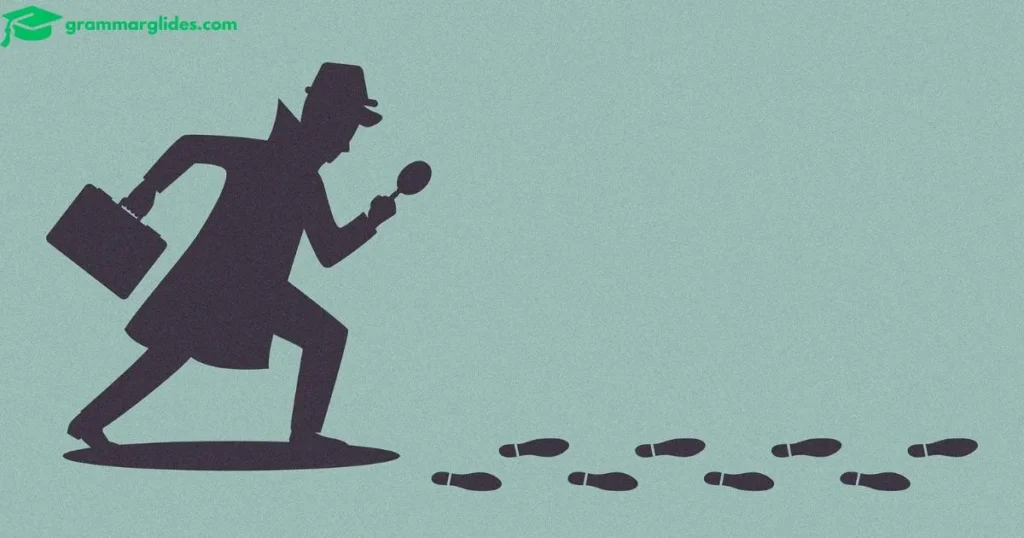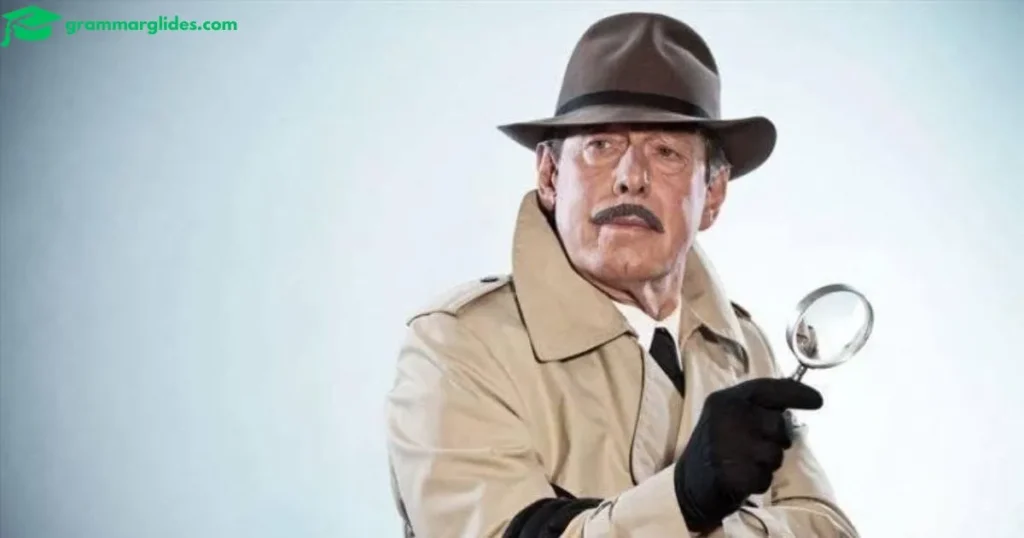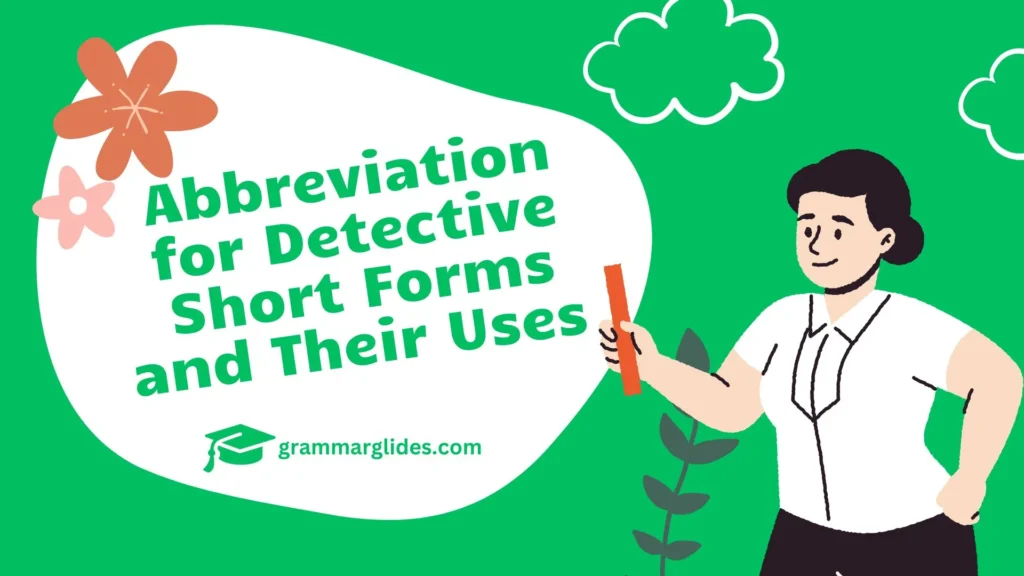In a fast-paced world, where every second counts, abbreviations have become an essential part of communication. Have you ever wondered how the abbreviation for detective helps simplify conversations in crime dramas, reports, and modern storytelling?
From thrilling novels to real-life investigations, detectives hold a vital role, and their short forms save both time and space while adding a professional touch.
Whether you’re a fan of crime shows or working in the field, understanding these abbreviations adds value to your knowledge. This post dives into how these short forms are used across industries, from entertainment to law enforcement, making detective work more approachable and easier to discuss.
Here, we will explore all you need to know about detective abbreviations, offering examples and insights tailored just for you. Don’t skip this post – the next sections are packed with valuable information that will leave you feeling well-informed and confident about the topic!
Abbreviation for Detective
Detectives are essential in solving crimes, uncovering secrets, and analyzing cases. The term “detective” has several abbreviations that simplify its usage in conversations, reports, and storytelling. These abbreviations play practical and creative roles in various fields, from law enforcement to private investigations.
| Abbreviation | Full Form | Uses |
|---|---|---|
| Det. | Detective | Commonly used in police reports, official documents, or casual conversations. |
| Insp. | Inspector | Often used for a higher-ranking detective, especially in formal reports or TV shows. |
| CID | Criminal Investigation Department | Refers to specialized detective units handling serious crimes. |
| PI | Private Investigator | Used for detectives working independently or in private firms. |
| DCI | Detective Chief Inspector | A rank used in law enforcement, especially in British police hierarchies. |
| Sgt. | Sergeant | Refers to a detective sergeant in charge of supervising investigations. |
| Det. Insp. | Detective Inspector | A rank indicating a senior detective officer. |
| Spec. Agent | Special Agent | Refers to detectives in federal agencies like the FBI or CIA. |
| Inv. | Investigator | A general term used for any detective or investigator in official or casual settings. |
| D/Sgt. | Detective Sergeant | Used to refer to a detective who holds the rank of sergeant in a department. |
Short Form or Abbreviation for Detective
The short forms commonly used for “detective” include Det., Dt., and D. These abbreviations appear in police records, TV scripts, and casual conversations.
For instance, Det. Smith is quicker to write than the full title. In informal settings, abbreviations like Tec or Detec are also popular, especially in crime fiction and creative writing.
Abbreviation for Detective & Work as Private Agent
Private agents often use specific abbreviations like PI (Private Investigator) or Operative to define their roles. While police detectives maintain official terminology, private agents prefer creative and descriptive terms.
For example, a detective working in cybersecurity might be referred to as a CSPI (Cyber Security Private Investigator). These terms make it easier to identify the field of expertise and maintain professionalism.
How to Pronounce Detective

The word “detective” is pronounced as dih-TEK-tiv with the emphasis on the second syllable.
In formal settings, the full word is used, while abbreviations like Det. or PI are pronounced as individual letters. For example, “Det. John” would be pronounced as “Dee-tee John.”
What Does Detective Mean?
A detective is someone who solves crimes, uncovers facts, and conducts investigations. The term originates from the Latin word “detegere,” meaning “to uncover” or “to reveal.”
Detectives work across various domains, such as solving criminal cases, handling private matters, or conducting corporate investigations.

Metaphors for Winter Creative Ways to Describe the Season
Synonyms for Detective
Some popular synonyms for detective include investigator, sleuth, inspector, and operative. Informal terms like gumshoe and private eye are often used in novels and movies. These synonyms reflect the diverse roles detectives play in modern-day problem-solving.
- Investigator
- Inspector

- Sleuth
- Gumshoe
- Private Eye
- Crime Solver
- Agent
- Shamus
- Special Agent
- Tracer
The Suitable Use of the Abbreviation
Abbreviations for detectives should match the context. For example, Det. is commonly used in law enforcement, while PI suits private agents.
When writing formal documents, always stick to the widely recognized short forms. In casual settings, creative abbreviations like Tec or Eye can add a conversational tone.
The History of the Word
The term “detective” first appeared in English during the 19th century when professional policing emerged. It gained popularity with figures like Sherlock Holmes, who revolutionized the role of investigators in literature.
Over time, the word evolved to include private agents and specialists in various fields.
Use in Example Sentences
- Det. Brown solved the case in record time.
- The PI uncovered crucial evidence during the investigation.
- A detective’s job is to reveal the truth behind mysteries.
- She hired a private investigator to handle the case discreetly.
- The term “Tec” was often used in old crime novels.
Key Insight
1. What is the most common abbreviation for detective?
The most common abbreviation is Det., used in law enforcement and official documentation.
2. Are private investigators considered detectives?
Yes, private investigators are detectives who work independently or for private clients rather than law enforcement.
3. How is “detective” pronounced?
It is pronounced as dih-TEK-tiv, with emphasis on the second syllable.
4. What are informal terms for detectives?
Informal terms include gumshoe, private eye, and sleuth, often used in literature and pop culture.
5. Can I use “PI” instead of detective in professional writing?
Yes, PI is acceptable when referring to private investigators, but ensure the abbreviation matches the context.
Conclusion
The abbreviation for detective is more than just a shortened form of a word; it reflects the diverse roles and responsibilities of investigators in today’s world. Understanding these abbreviations and their proper usage helps you appreciate the depth of detective work, whether in real life or fiction. From Det. to PI, these terms offer insight into an essential profession. Keep exploring this topic and uncover the fascinating world of detectives.
Don’t skip this post—read every section to enhance your knowledge and confidence in using these abbreviations effectively.

Hi! I’m Lauren Reynolds, the author of Grammar Glides. I create easy-to-follow content that helps you master English with confidence. Let’s make learning English simple and enjoyable together!

